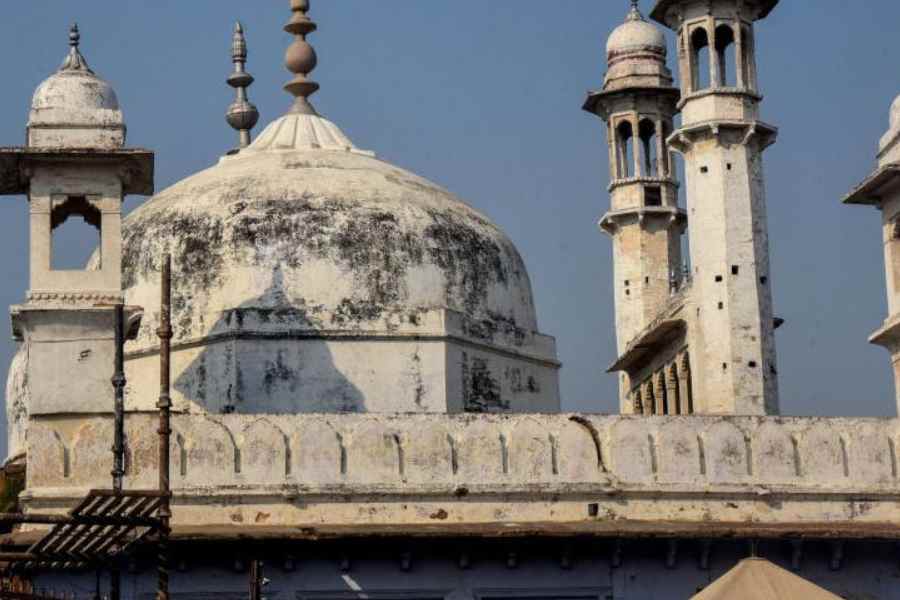Varanasi city’s topmost Muslim cleric has alleged there were no idols in the basement of the Gyanvapi Mosque when the district court on January 31 allowed Hindus to worship there.
"They planted the idols in the southern part of the basement the same night with the help of the local administration and started worshipping them," Mufti-e-Sheher Maulana Abdul Batim Nomani, who is also secretary of the mosque management committee, told reporters on Sunday.
"We can understand what is going on against the Muslim community but we shall fight for the Gyanvapi till the end. I call on members of the community to pray for our success."
The Hindu side said there were four idols already in the basement when it was opened for worship.
Allahabad High Court is expected to hear on February 6 the mosque committee’s petition against the district court’s order.
A.K. Vishvesha, who retired as district judge after passing Wednesday’s Gyanvapi order, said on Saturday: “The order to open the basement is based on evidence.”
The district court had asked the administration to make arrangements for Hindus to worship at the basement within a week after consulting the authorities of the Kashi Vishwanath Temple and Gyanvapi Mosque, which abut each other.
But the district administration handed the basement over to Hindus late in the same night, with mosque authorities saying they were not consulted.
Vishvesha’s order came on a petition that said the mosque’s basement, called Vyasji Ka Tahkhana, belonged to a certain Vyas family and Hindus worshipped there regularly till the Mulayam Singh Yadav government barricaded the place off in December 1993.
“There were four idols in the basement when we went there after the court order,” said Jitendra Vyas, a member of the Vyas family.
“We cleaned the place and started aarti and puja. While the puja is going on round the clock, we are doing aarti four times a day.”
The administration has not allowed ordinary devotees to enter the basement but set up a grille window on the temple side for them to watch the puja from about 18 feet away.
Vyas said about 2 lakh devotees had paid obeisance from the window.
On Friday, senior clerics and Muslim leaders had gathered in Delhi to express the community’s anguish at recent legal and administrative developments over the Gyanvapi, suggesting the judiciary and bureaucracy were “grossly compromised” but saying they still had faith in justice and democracy.
Mosque committee members had pointed to a six-fold increase in the number of namazis on Friday to claim “simmering discontent in the community”.











